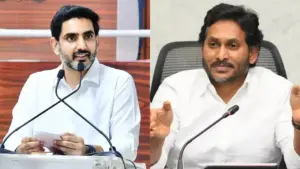Ram Charan, Manchu Manoj to act in a multi starrer movie
Recent Random Post:
Anil Ravipudi Reunites with Kalyan Ram for Upcoming Film

Young director Anil Ravipudi is earning widespread acclaim from both fans and industry insiders for his humility, loyalty, and grounded personality. While his upcoming film with Venkatesh Daggubati has already created significant buzz, the unexpected inclusion of Nandamuri Kalyan Ram has pleasantly surprised audiences. This pairing is more than just a casting choice—it carries deep emotional significance. Kalyan Ram gave Anil his first major break as a director with Pataas, a film that became a massive hit and firmly established Anil in Tollywood. By involving Kalyan Ram in his new project, Anil is showing gratitude and respect for the people who believed in him during the early stages of his career.
Fans have praised Anil Ravipudi for remembering his roots despite achieving commercial success. The collaboration also comes at a time when Kalyan Ram is going through a relatively quieter phase in his career, making this project potentially significant for him at the box office. Recently, Anil marked 11 successful years in the Telugu film industry with an emotional note reflecting on his journey. He expressed heartfelt thanks to everyone who supported him, with a special mention of his first hero, Kalyan Ram, for placing faith in him at a pivotal moment.
Anil shared that Kalyan Ram’s confidence in him gave him the courage to move forward fearlessly in the industry. With a consistent track record of hits, expectations are high for his next project, which is expected to be officially announced soon. Over the years, Anil Ravipudi has delivered numerous box-office successes, including F2 and Sankranthiki Vasthunam, films that particularly resonate with family audiences during the Sankranti festival season, consistently proving his commercial and creative acumen.
















